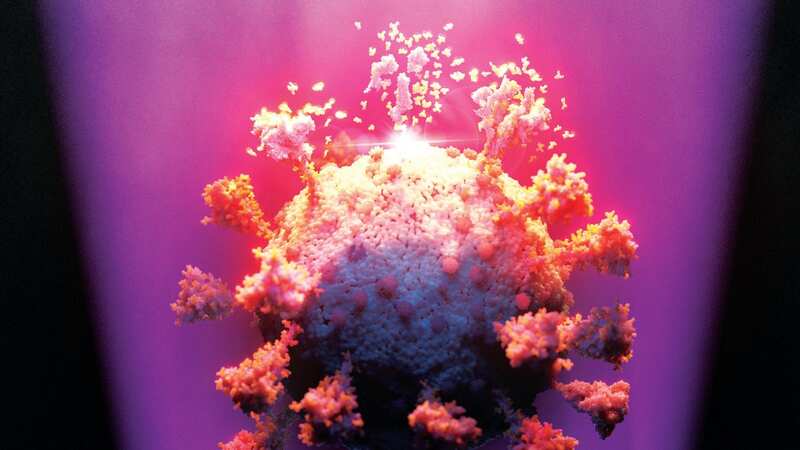
Scientists have found a way to "switch off" harmful coronavirus particles like the notorious Covid-19 using ultraviolet (UV) light, which could help clean public spaces.
The team from the University of Southampton looked at how UV laser light can target the virus's genetic core and the protein spikes sticking out, both needed to pass on infection. Professor Sumeet Mahajan, who led the study published in the journal ACS Photonics, said that UV light could be useful for decontamination where conventional liquid-based methods weren't suitable.
He added that Sars-CoV-2, which caused Covid-19, had one of the largest genomes for RNA viruses, making it especially sensitive to genomic damage - and so potentially a perfect target for using light-based decontamination.
Prof Mahajan stated: "Light deactivation of airborne viruses offers a versatile tool for disinfection of our public spaces and sensitive equipment that may otherwise prove difficult to decontaminate with conventional methods. Now we understand the differential sensitivity of molecular components in viruses to light deactivation this opens up the possibility of a finely tuned disinfection technology."
A university spokeswoman said: "By using a specialised ultraviolet laser at two different wavelengths the scientists were able to determine how each viral component degraded under the bright light. They discovered that the genomic material was highly sensitive to degradation and protein spikes lost their ability to bind to human cells."
 Nursery apologises after child with Down's syndrome ‘treated less favourably’
Nursery apologises after child with Down's syndrome ‘treated less favourably’
* An AI tool was used to add an extra layer to the editing process for this story. You can report any errors to webhomepage@mirror.co.uk